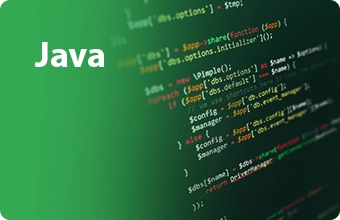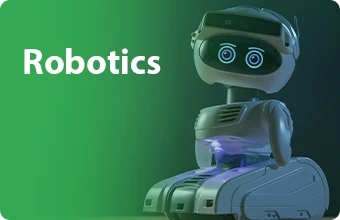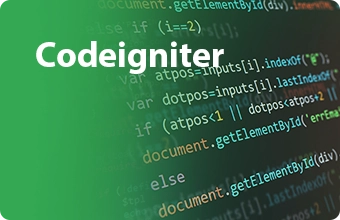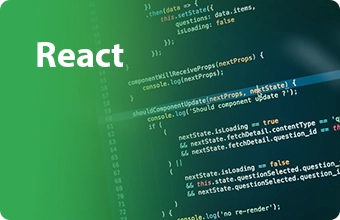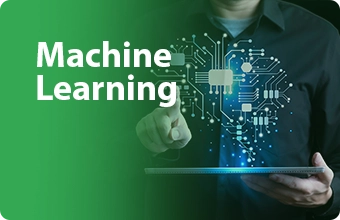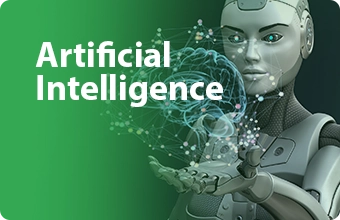Machine Learning
Machine learning is a subfield of artificial intelligence (AI) that focuses on the development of algorithms and statistical models that enable computers to perform tasks without being explicitly programmed. The primary goal of machine learning is to allow computers to learn from data and improve their performance over time.

Machine learning is a subfield of artificial intelligence that focuses on developing algorithm and models capable of learning from data rather than being explicitly programmed. It enables computers to improve their performance on tasks through experience. So, join the Machinic learning Kerala Trivandrum, The key characteristics of machine learning include.Data-driven: Machine learning algorithms learn from data, identifying patterns and relationships without explicit programming.Adaptive learning systems can adapt to new data and changing environments, making them valuable in dynamic situations.Generalization is to develop models that can generalize well to new, unseen data, not just memorize the training examples.
- Learning from Data:
- Machine learning systems learn from data patterns and examples rather than relying on explicit programming.
- Adaptability:
- Machine learning models can adapt and improve their performance over time as they are exposeto more data.
- Automation:
- Once trained, machine learning models can automate decision-making and predictions without human intervention.
- Generalization:
- ML models aim to generalize from the training data to make accurate predictions on new unseen data.
- Pattern Recognition:
- ML algorithms excel at identifying and learning patterns within data, allowing them to make predictions or decisions based on those patterns. Furthermore, they can discover subtle relationships and trends that may not be readily apparent to humans. Moreover, through continuous exposure to data, these algorithms can refine their understanding and improve their accuracy over time. In essence, ML algorithms leverage the power of data to unlock insights and automate decision-making processes, making them invaluable tools in a wide range of applications.
- Prediction and Classification:
- ML models are often used for predicting future outcomes or classifying input data into predefine categories. Moreover, they can also be employ for anomaly detection, clustering similar data points, and generating new data that resembles existing patterns. In essence, ML models provide powerful tools for extracting insights and making informed decisions from data.
- Scalability:
- Machine learning techniques can scale to handle large and complex datasets, furthermore, they can be applied to various domains. In addition, they enable efficient analysis and discovery of patterns within massive volumes of information. Moreover, their adaptability allows them to be utilized across diverse fields, from healthcare to finance and beyond. Consequently, machine learning’s scalability and versatility make it a powerful tool for addressing challenges and driving innovation in the modern data-driven world.
- Feedback Loop:
- Reinforcement learning involves a feedback loop where the model learns from its actions in an environment and receives feedback in the form of rewards or penalties.
- Iterative Improvement:
- Machine learning models can be iteratively improve by refining algorithms, adjusting parameters, or incorporating new data.
- Complexity Handling:
- ML models can handle complex problems and large amounts of data, making them suitable for tasks that might be challenging for traditional rule-based systems.
- Feature Extraction:
- ML algorithms can automatically identify relevant features or attributes from raw data.
- Non-Linearity:
- ML models can capture non-linear relationships between input features and output, allowing them to represent complex functions.
- Probabilistic Output:
- Many machine learning models provide probabilistic outputs, indicating the likelihood of a particular outcome.
- Interpretability:
- Depending on the algorithm, ML models may offer varying levels of interpretability, allowing users to understand the reasoning behind predictions.
- Application Diversity:
- Machine learning is applicable in a wide range of fields, including image and speech recognition, natural language processing, healthcare, finance, and more.
Start your new career as a machine learning Expert with our course and internship program. learn Machinic learning from Kerala Trivandrum, is one course that will help you achieve perfection, whether you are a beginner aspiring to build a career or a professional seeking advancement in your profession.
Introduction to Machine Learning – 6 hours
Basic Concepts in Statistics and Probability – 12 hours
Introduction to Python for Machine Learning – 8 hours
Data Collection and Cleaning – 10 hours
Explorator
Data Analysis (EDA) – 12 hours
Feature Engineering – 8 hours
Linear Regression – 14 hours
Polynomial Regression – 8 hours
Evaluation Metrics for Regression – 10 hours
Logistic Regression – 10 hours
Decision Trees and Random Forests – 16 hours
Support Vector Machines (SVM) – 10 hours
Evaluation Metrics for Classification – 10 hours
Unsupervised Learning – Clustering – 10 hours
Dimensionality Reduction (PCA) – 10 hours
Association Rule Learning – 8 hours
Cross-Validation – 10 hours
Grid Search and Random Search – 8 hours
Model Selection and Evaluation – 10 hours
Introduction to Neural Networks – 10 hours
Multilayer Perceptrons (MLP) – 10 hours
Convolutional Neural Networks (CNN) – 20 hours
Recurrent Neural Networks (RNN) – 14 hours
Introduction to Natural Language Processing (NLP) – 10 hours
Text Preprocessing – 10 hours
Word Embeddings – 10 hours
Text Classification with RNNs and LSTMs – 10 hours
Introduction to Reinforcement Learning – 10 hours
Q-Learning and Deep Q Networks (DQN) – 10 hours
Advanced Topics and Emerging Trends – 14 hoursCourse Recap and Final Project – 68 hours
You May Like
Our thoughtfully designed internship programs provide a tailored and enriching experience for aspiring professionals.

